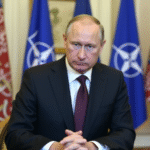Introduction
The upcoming reform to the Federal Economic Competition Law has sparked public debate regarding significant changes and potential consequences. Here’s a summary of the most relevant topics:
Redefined Application to State Enterprises
One of the main discussions revolves around potentially redefining the application of competition policy to state-owned enterprises, which could lead to their complete immunity. This situation might cause controversies within the framework of the T-MEC.
Concentrations
In terms of concentrations, there will be a reduction in analysis timeframes and an extension of the period for investigating non-notifiable operations. This change is expected to result in a higher number of concentrations that need quicker resolution.
Absolute Monopolistic Practices
There are substantial discussions about changes in absolute monopolistic practices. The exchange of information among competitors might be deemed illegal without a link to anti-competitive conduct, and the concept of potential competitors as possible responsible parties will be introduced. This shift will increase risks for businesses, lower the burden of proof for the authority, and necessitate additional precautions in merger and acquisition negotiations and business partnerships.
Relative Monopolistic Practices
Another topic is the possible inclusion of unjust limitations on the competitive capacity of dominant firms. It remains uncertain if this could lead to additional regulatory measures for businesses.
Penalties
The reform aims to significantly increase penalties and make their enforcement stricter. Penalties will apply immediately after the competition agency issues its resolution, impacting businesses before exhausting legitimate defense means.
Individual and Collective Actions for Damage Reparation
There’s a goal to encourage civil damage claims through the leadership of the competition authority. To achieve this, modifications are planned for the prescription rule and other legal provisions.
Authority’s Guidance and Lineaments
The authority will retain the power to issue guidelines and lineaments, though it won’t be mandatory or subject to public consultation. This ambiguity will complicate the clear application of legal provisions and create practical interpretation issues for key concepts.
New Authority Functions
The new authority will incorporate functions currently held by the IFT, increasing its workload and requiring additional budget. The authority must implement policies to attract and retain specialized talent in telecommunications and broadcasting.
Challenges for Businesses
Businesses face several challenges. First, they must modify risk management through more robust compliance programs, particularly in merger negotiations and collaboration instances with competitors. Second, they need to apply financial planning measures that include contingencies related to immediate penalty payments. Lastly, sophisticated legal defense strategies will be required in administrative, amparo, and civil fronts.
Challenges for the Authority
The authority faces a complex scenario, as its responsibilities will grow while the budget might be limited. Two strategies are recommended: concentrating agency action on cases posing the greatest risk to the competitive process through analytical and procedural efforts, and issuing new guidelines and lineaments that clarify procedures and conceptual interpretations, enforce disciplined action by the authority, and provide certainty to investors.
Key Questions and Answers
- What is the main focus of the upcoming reform? The reform aims to address various aspects of the Federal Economic Competition Law, including changes in state enterprise application, concentrations, monopolistic practices, penalties, and individual/collective actions for damage reparation.
- How will the reform affect state-owned enterprises? The redefinition of competition policy application to state enterprises could lead to their complete immunity, causing controversies within the T-MEC framework.
- What changes are expected in concentrations? There will be a reduction in analysis timeframes and an extension of the period for investigating non-notifiable operations, leading to quicker resolution of a higher number of concentrations.
- How will monopolistic practices be handled? There are substantial discussions about changes in absolute and relative monopolistic practices, which may increase risks for businesses and necessitate additional precautions.
- What will be the impact of increased penalties? Penalties will apply immediately after the competition agency’s resolution, impacting businesses before exhausting legitimate defense means.
- How will individual and collective actions for damage reparation be encouraged? The competition authority aims to encourage civil damage claims through leadership and planned modifications for the prescription rule and other legal provisions.
- What challenges does the new authority face? The new authority will handle increased responsibilities with a potentially limited budget, requiring strategic concentration on high-risk cases and issuing clear guidelines for disciplined action.






